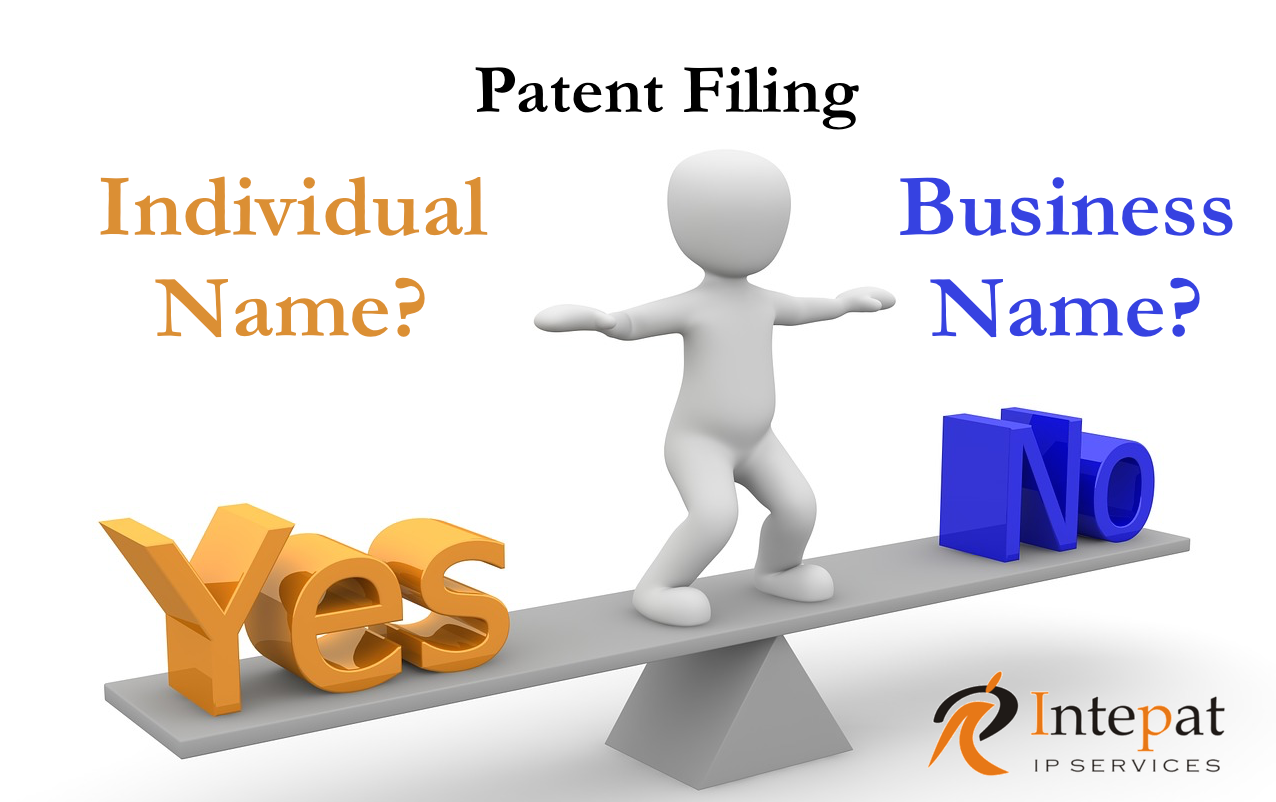Our previous blog post has listed out the comprehensive steps involved in patent filing in India. One major source of concern for many patent applicants is whether to file the patent application in the name of the individual or in the business name. At the outset, it is brought to your notice that the answer to this dilemma is not definitive. It depends on the requirement of the Applicant. Merits and demerits exist for both, individual name, as well as business name. Therefore, the decision must be arrived at after carefully weighing the alternatives. There are four major considerations that determine the decision of “patent application filing” in an individual’s name or in the business name.
Patent Application Filing – Considerations:
1.Cost: The cost for filing a patent application in India is way lower for an individual as compared to a company. Cost is the foremost consideration for most patent applicants. They want to keep the patent filing cost at a minimum. If cost is the sole consideration then it is better to file the patent application in the name of the individual. For qualified start-ups, there is no reason to worry because the cost of patent filing is the same as the cost for an individual. Please refer our blog post for patent fees to understand the cost difference between a patent application by an individual and by a company.
2.Investor’s requirement: If your company is backed by investors then filing a patent application depends on their requirement. Usually, the investors prefer patents to be in the name of the company, rather than in the name of an individual.
3.Economy: A patent back by a company always has more credibility than a patent backed by an individual. Therefore, a patent registered in a business name will draw more revenue than a patent registered in an individual’s name.2.Investor’s requirement: If your company is backed by investors then patent filing depends on their requirement. Usually, the investors prefer patents to be in the name of the company, rather than in the name of an individual.
4.Patent Infringement: Suppose a patent is infringed upon, the remedy for infringement entitles you to damages or an account of profits. If the patent was owned by a company then the damages awarded will be much larger than what will be awarded for a patent owned by an individual.
Conclusion:
If a company (not a startup) is incorporated recently and it does not have a lot of finances, it is always better to register a patent in the individual’s name. This has two advantages: first, the whole cost of registration will be less; second, the utility of the patent can be tested in the market before spending a lot of money on the registration.
However, registering a patent in the name of the business has the undeniable advantage of adding credibility to the patent. In order to solve this, you can first register the patent in the individual’s name and then after the company stabilizes in the market, transfer the patent (by way of assignment) to the company’s name. This is an economically viable option.




